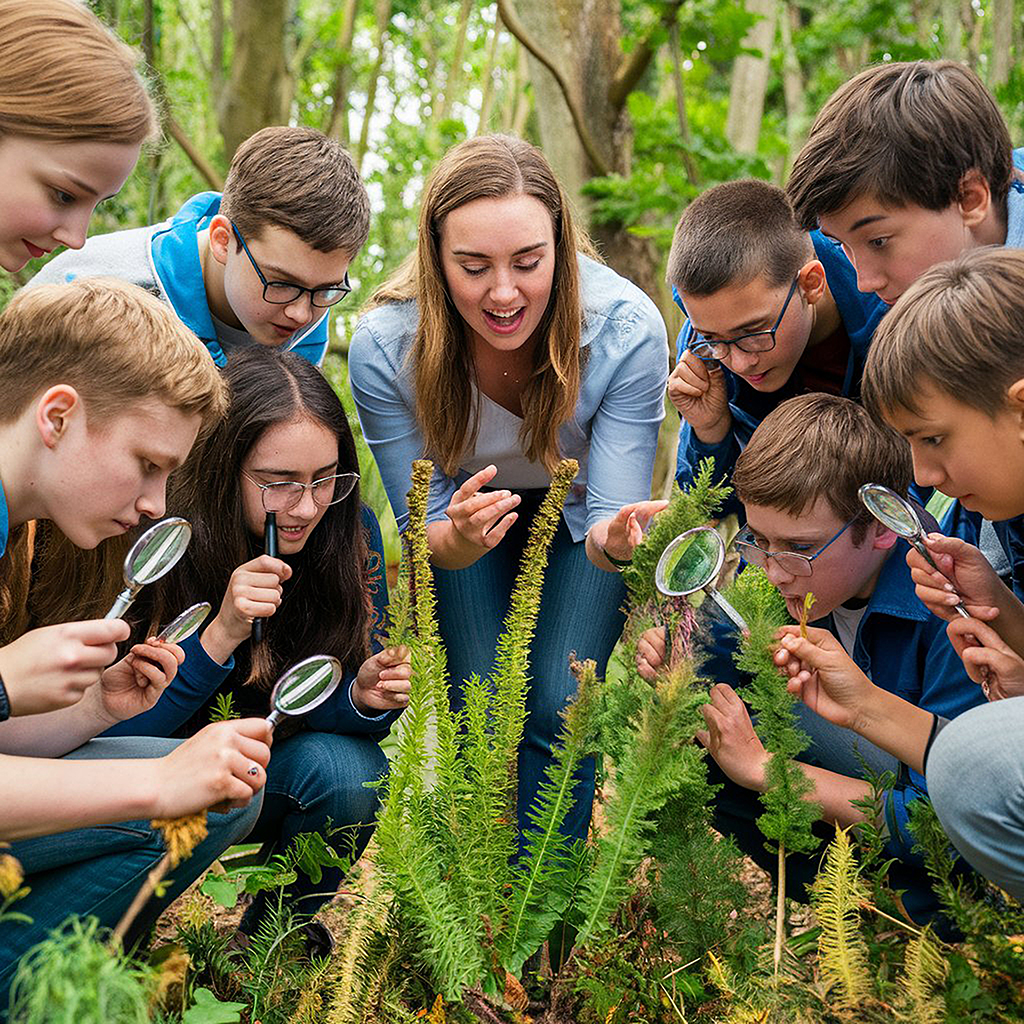
The Importance of Nature in the Swedish Education System
In the heart of Sweden’s educational philosophy lies an unwavering commitment to the environment and nature. As one of the most eco-conscious countries in the world, Sweden incorporates nature into its education system in meaningful and innovative ways. The country’s deep connection with its natural surroundings not only enriches the learning experience but also plays a pivotal role in shaping students’ perspectives on sustainability, well-being, and personal development.
Nature as a Classroom
In Sweden, nature is not just a subject studied from textbooks—it is an integral part of the learning process. From an early age, students are encouraged to explore outdoor spaces as part of their education. The Swedish curriculum emphasizes learning through experience, and there is a growing recognition that nature is one of the best classrooms available.
Preschools and primary schools often have regular “outdoor lessons,” where students take part in activities like nature walks, outdoor science experiments, and even creative arts projects. These lessons allow students to engage directly with the world around them, fostering a deeper understanding of the environment and instilling a sense of responsibility towards it.
The Connection Between Nature and Well-being
Swedes are well known for their appreciation of nature’s calming and healing properties. This appreciation is reflected in the educational system, where nature is seen as a crucial component of mental and physical well-being. Swedish schools recognize that time spent outdoors improves concentration, reduces stress, and promotes overall health.
By regularly engaging with nature, students develop resilience, mindfulness, and a strong sense of belonging. Whether it’s through a simple walk in the woods or a more immersive outdoor adventure, these experiences provide students with a break from the pressures of the classroom, allowing them to refresh and refocus.
Promoting Sustainability and Environmental Awareness
Sweden is a global leader in sustainability, and its education system is firmly rooted in this philosophy. Nature-based education teaches students about environmental challenges and encourages them to think critically about sustainable practices. In schools across Sweden, students are introduced to topics such as climate change, renewable energy, and conservation—issues that are increasingly important as the world faces ecological challenges.
Outdoor learning environments serve as real-life laboratories for studying the environment. Students may be involved in projects like growing their own food, participating in recycling programs, or studying biodiversity in local forests and lakes. These experiences not only make learning more engaging but also instill a sense of responsibility for protecting the planet.
Encouraging Creativity and Problem-Solving
Nature also nurtures creativity and problem-solving skills, essential qualities for students to develop in the 21st century. The unstructured nature of outdoor learning provides students with the freedom to think creatively, experiment, and explore new ideas. Whether they’re building shelters, solving environmental problems, or simply observing wildlife, students are challenged to use their imagination and develop critical thinking skills.
The beauty of nature is that it offers endless opportunities for discovery. From observing natural phenomena to working on collaborative outdoor projects, students learn to think outside the box and approach challenges with innovative solutions.
Nature as a Catalyst for Social Interaction
Outdoor lessons in Sweden also provide a unique opportunity for students to collaborate in ways that are not always possible in traditional classroom settings. Working together in nature fosters teamwork, communication, and leadership skills. Whether it’s gathering firewood, organizing a nature-based scavenger hunt, or building a nature shelter, students learn the value of cooperation and shared responsibility.
In addition, the outdoor environment helps break down barriers between students from different backgrounds. Nature serves as a universal language, offering a neutral space where students can come together, share experiences, and form connections based on mutual respect and curiosity.
Nature as Part of Swedish National Identity
For Swedes, nature is not just a classroom or a tool for education—it is a cornerstone of national identity. The concept of “Allemansrätten” (The Right of Public Access) gives everyone the right to roam freely in nature, and this deep connection with the outdoors is woven into the fabric of Swedish culture. Schools reinforce this connection by teaching students about the importance of preserving natural spaces and encouraging them to spend time in nature as part of their personal development.
Conclusion: Preparing Students for the Future
Incorporating nature into education in Sweden isn’t just about exploring the outdoors; it’s about preparing students for the challenges of the future. By fostering a love for nature, Swedish schools help students develop into environmentally conscious, creative, and resilient individuals who understand the importance of sustainable practices. The lessons learned in nature are not only valuable today but will be essential for tackling the complex environmental challenges of tomorrow.
Through outdoor education, Sweden is shaping a generation that is not only knowledgeable but also connected to the world around them—a generation ready to protect, preserve, and lead in a sustainable future.
